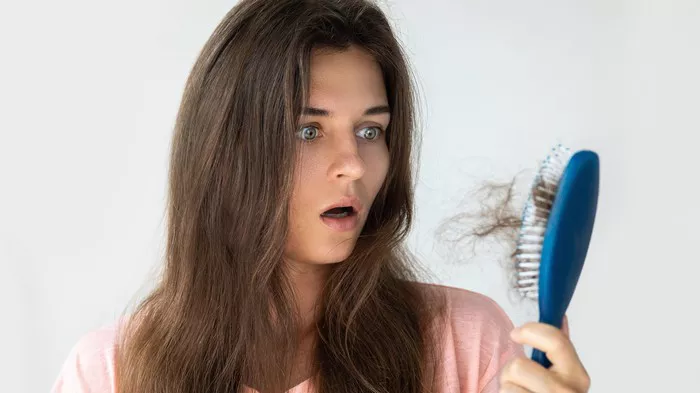Hair loss is a distressing side effect of steroid use, affecting individuals undergoing certain medical treatments or performance-enhancing regimens. Understanding the causes of steroid-induced hair loss and exploring potential solutions are crucial steps for individuals grappling with this issue. In this article, we delve into the topic of whether hair loss from steroids will grow back, providing valuable insights for those navigating this challenging condition.
Causes of Steroid-Induced Hair Loss
Androgenic Effects: Anabolic steroids, commonly used for performance enhancement or medical purposes, can exert androgenic effects on the body. These steroids may increase the production of dihydrotestosterone (DHT), a potent androgen hormone known to contribute to hair loss.
Disruption of Hair Growth Cycle: Steroids can disrupt the natural hair growth cycle, leading to premature shedding and thinning of hair. This disruption may occur due to alterations in hormone levels or direct effects on the hair follicles.
Genetic Predisposition: Individuals with a genetic predisposition to androgenetic alopecia (male or female pattern baldness) may be more susceptible to steroid-induced hair loss. Steroids can accelerate the progression of hair loss in those already predisposed to this condition.
Increased Scalp Sensitivity: Steroids may increase scalp sensitivity to DHT or other hormonal fluctuations, exacerbating hair loss in susceptible individuals. This heightened sensitivity can lead to inflammation and miniaturization of hair follicles, ultimately resulting in hair thinning.
Solutions for Steroid-Induced Hair Loss
Discontinuation or Modification of Steroid Use: In cases where steroid-induced hair loss is suspected, discontinuing or modifying steroid use under the guidance of a healthcare professional may help mitigate further hair loss. Switching to alternative medications or adjusting dosages can minimize the impact on hair follicles.
Topical Treatments: Topical solutions containing minoxidil, a medication approved for treating hair loss, may help stimulate hair regrowth in individuals experiencing steroid-induced hair loss. Minoxidil works by promoting blood flow to the scalp and prolonging the growth phase of hair follicles.
Anti-Androgen Medications: In some cases, anti-androgen medications such as finasteride or spironolactone may be prescribed to counteract the androgenic effects of steroids on hair follicles. These medications inhibit the conversion of testosterone to DHT, thereby reducing the impact of DHT on hair loss.
Scalp Therapy: Scalp treatments incorporating ingredients such as ketoconazole, caffeine, or essential oils may help improve scalp health and promote hair regrowth. These treatments can help reduce inflammation, nourish the scalp, and support the growth of healthy hair.
Hair Transplantation: For individuals experiencing advanced or irreversible hair loss, hair transplantation procedures such as follicular unit transplantation (FUT) or follicular unit extraction (FUE) may offer a more permanent solution. These procedures involve transplanting healthy hair follicles from donor areas to balding or thinning areas of the scalp.
Will Hair Grow Back After Steroid-Induced Hair Loss?
The prognosis for hair regrowth following steroid-induced hair loss varies depending on individual factors such as the severity of hair loss, duration of steroid use, and underlying genetic predisposition. In some cases, hair may regrow spontaneously once steroid use is discontinued or modified. However, complete recovery may take several months to years, and not all individuals may experience full restoration of hair density.
Factors influencing the likelihood of hair regrowth include:
Severity of Hair Loss: Individuals experiencing mild to moderate hair loss may have a better chance of regaining hair density compared to those with advanced or widespread balding.
Duration of Steroid Use: Hair loss resulting from short-term steroid use may be more reversible compared to hair loss associated with long-term or chronic steroid use.
Underlying Genetic Factors: Individuals with a genetic predisposition to androgenetic alopecia may have a more challenging time regrowing hair following steroid-induced hair loss.
Effectiveness of Interventions: The timely implementation of hair loss treatments and interventions may enhance the likelihood of successful hair regrowth in individuals experiencing steroid-induced hair loss.
While hair regrowth is possible in many cases, it’s essential to manage expectations and consult with a healthcare professional for personalized guidance and treatment recommendations.
Conclusion
In conclusion, steroid-induced hair loss can be a distressing side effect for individuals undergoing medical treatments or performance enhancement regimens. Understanding the causes of hair loss from steroids and exploring potential solutions are essential steps for managing this condition effectively.
While hair regrowth is possible in many cases, the timeline and extent of recovery may vary depending on individual factors. By consulting with a healthcare professional and implementing appropriate interventions, individuals experiencing steroid-induced hair loss can take proactive steps towards restoring hair health and confidence.
How Long Does Acute Telogen Effluvium Last

